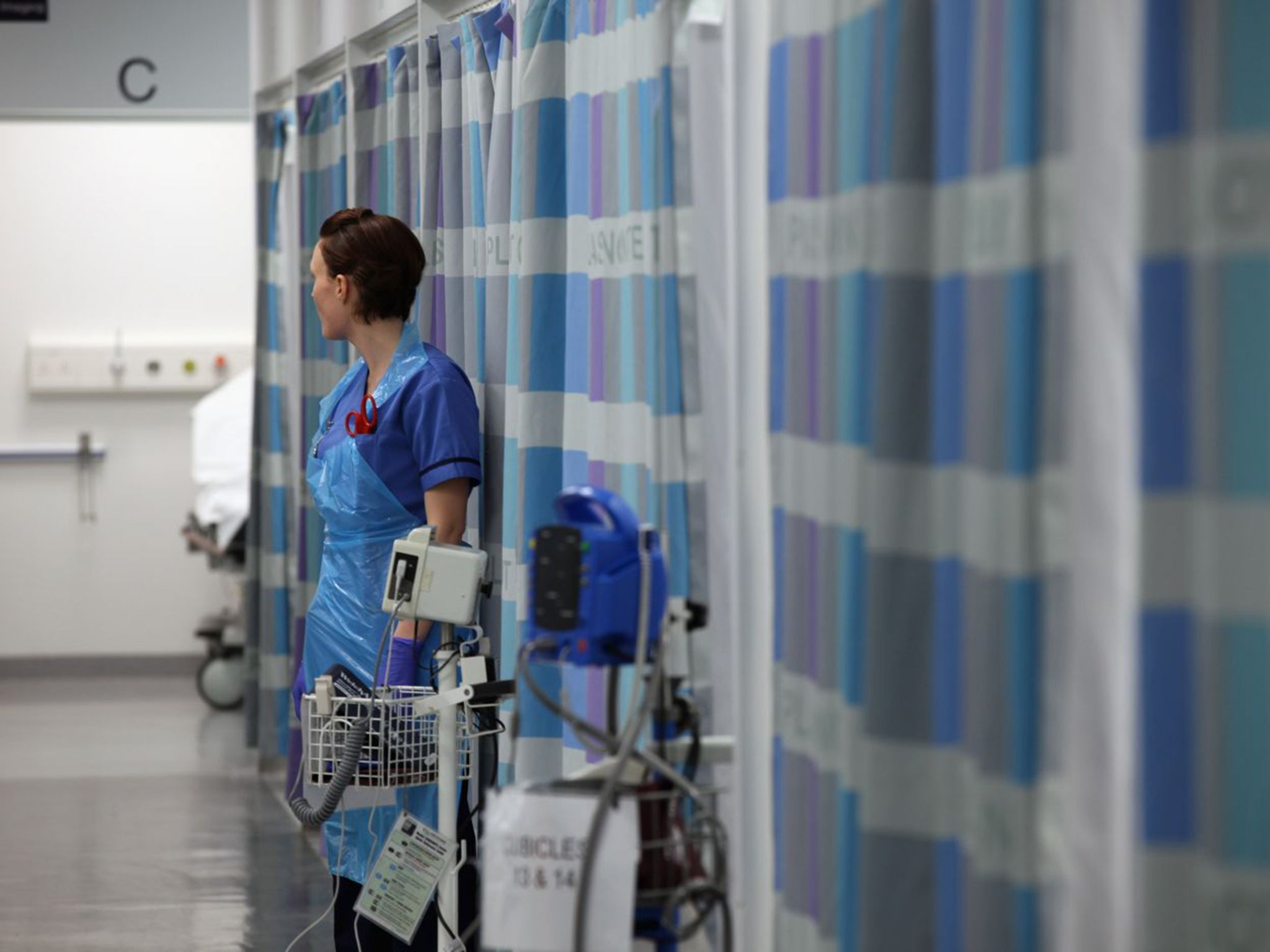Sick children's wellbeing 'compromised' by shortage of NHS staff
'After seven years of Tory mismanagement our health services are dangerously understaffed,' says shadow health secretary Jonathan Ashworth

Specialist children's wards are being forced to shut in NHS hospitals due to a severe shortage of doctors, “jeopardising” the health of vulnerable young patients, paediatricians have warned.
Dozens of paediatric units and hundreds of beds were temporarily closed in the space of a year, with children sent away to other hospitals to receive care, according to the Royal College of Paediatrics and Child Health (RCPCH).
Urgent action from the Government is needed to recruit more child health specialists, said Neena Modi, the college's president. Paediatricians are filling rota gaps by performing the jobs of two or three doctors at once, she warned, meaning "the quality of care people want to deliver is being compromised".
According to a RCPCH report released today, in the year to September 2015 around one third – 31 per cent – of the UK's 195 NHS trusts and health boards said they had temporarily closed paediatric wards due to staff shortages. Forty-one per cent of neonatal units had to refuse new patients.
There is currently an estimated deficit of more than 200 child health specialists across the NHS, including 133 consultants, according to the RCPCH.
“I’m worried about the wellbeing of patients today,” Professor Modi told The Independent. “When resources are insufficient, hard decisions have to be made, and those who have the most urgent and immediate need will of course be seen first.”
The situation could be made worse by Brexit, Professor Modi warned, with 40 per cent of career-grade paediatricians having earned their first qualification abroad.
Hospital admissions among children increased by a quarter between 2013/14 and 2015/16, the report said. The College is calling for an increase in the number of paediatrics trainees by 465 each year to avert a “potentially damaging” crisis of “long-term non-sustainability”.
Shadow health secretary Jonathan Ashworth said the Government’s “utter disregard for our NHS has left children’s health in a desperate state of need”.
The Labour MP told The Independent: "Demand for children’s healthcare has peaked and yet children’s units are being forced to close under unprecedented pressure and the paediatric workforce has been dangerously stretched to its very limit. It is a disgrace that the Tories have failed to guarantee the rights of non-UK nationals undertaking vital work in our NHS.
“The Tories are placing the health and wellbeing of our children in jeopardy. Only Labour will transform our NHS into a health system giving our children the very best possible start in life.”
The report comes amid a heated debate over the NHS in the run-up to the general election in which Labour has pledged a new law to ensure staffing levels remain safe at all times.

The party has promised to scrap the one per cent cap on pay rises for NHS workers and raise funds for more staff through a rise in corporation tax, which has been cut to 19 per cent from 28 per cent under the Conservatives.
“After seven years of Tory mismanagement our health services are dangerously understaffed,” Mr Ashworth said, adding that the new law would “guarantee safe staffing, so that finances never again take precedent over patient safety”.
Conservative health minister Philip Dunne responded by saying a Labour government would result in less money for the NHS, and not more.
Health Secretary Jeremy Hunt said the Government would like to pay NHS staff “more than we are able to at the moment, [but] we have to face a very difficult period financially”.
Professor Modi said low morale was a greater problem than low pay among paediatricians. “It’s not about not enough money in the system for pay rises, it’s about not enough money to support the growth that we need."
She added: “It is legitimate for us, and the UK public, to ask why, when solutions exist, the health and wellbeing of children are being placed in jeopardy?”
The report said that in 2015, general paediatric and neonatal rotas were coping with an average vacancy rate of 14 per cent.
Paediatrician Sarra Ahmed told The Independent she had experienced staff shortages at the hospital she works at in London. “What tends to happen is that you rely on people’s dedication to patient safety, so people work extra shifts,” she said.
“It comes down to prioritising resources, making sure the sickest patients are being attended to, to avoid risks,” added Dr Ahmed. “It’s well-known the NHS is suffering from poor morale. It’s at crisis point and there’s a feeling the Government isn’t listening to concerns about patient safety”.
Among recommendations put forward by the RCPCH are funding for an increase in trainee places, funding secondary care child health training for GPs and paediatric trainees, and promotion of an expansion in the academic paediatric workforce.
The College has previously warned that NHS services for children were struggling to cope partly due to female doctors going on maternity leave and working part-time.
Women represent 52 per cent of the consultant and 74 per cent of the trainee paediatric workforce, while 22 per cent of consultants (33 per cent of women and 9 per cent of men) work less than full-time.
The report also warned of the impact of Brexit, saying there was “great uncertainty around immigration status and terms and conditions of employment for non-UK nationals” working in the UK.
The college called for paediatrics to be put on the shortage occupation list. It said there must be assurance that “immigration rules allow entry to the UK of healthcare professionals whose clinical skills will benefit the NHS”.
The Department of Health said they were unable to comment due to purdah restrictions.
Join our commenting forum
Join thought-provoking conversations, follow other Independent readers and see their replies
Comments
Bookmark popover
Removed from bookmarks